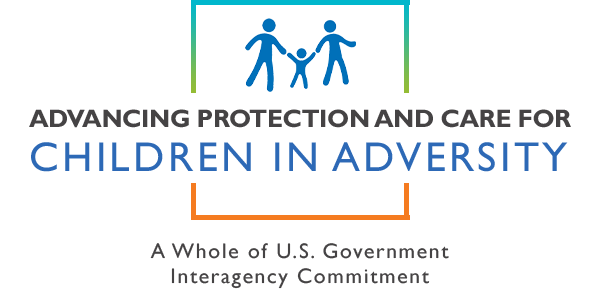The Five Ways Play Helps Children Thrive
The Five Ways Play Helps Children Thrive
How USAID supports play for children’s development, well-being, and learning
How USAID supports play for children’s development, well-being, and learning
By: Rachel Wisthuff (UNICEF USA), Elana Banin (International Rescue Committee), Amelia Erikson (UNICEF USA), Nicole Calvert (USAID), Cat Kirk (USAID), Michelle Neuman (USAID)
By: Rachel Wisthuff (UNICEF USA), Elana Banin (International Rescue Committee), Amelia Erikson (UNICEF USA), Nicole Calvert (USAID), Cat Kirk (USAID), Michelle Neuman (USAID)
June 11, 2024
Today marks the first-ever International Day of Play, a moment established by the United Nations General Assembly to celebrate one of the most transformative forces in a child’s life.
Play is fun, and so much more! For children, play is serious business. Research shows that play is one of the most effective ways to support children’s development and well-being. Playful interactions between babies, toddlers, older siblings, and adults help children build the developmental foundations for lifelong learning, well-being, and resilience. From fostering creativity and problem-solving skills to promoting mental well-being and social interaction, play is fundamental to a child’s holistic development.
The need to support children’s right to play is more urgent now than ever. By implementing USAID’s Advancing Protection and Care for Children in Adversity Strategy and the Global Child Thrive Act, we can ensure that countries and communities provide play opportunities, particularly for the most vulnerable and marginalized children, at home and in the broader community.
Here are the five ways that play helps children thrive:
1. Play comes naturally to children.
When infants and children instinctively explore their surroundings, they are learning about the world around them. Play doesn’t have to rely on specific toys or objects, the best play for children involves responsive interactions with caregivers starting the moment they are born.
Around the globe, frontline health workers are the most likely to have contact with newborns, young children, and their caregivers. USAID supported Global Health Media in Ghana and Kyrgyz Republic to leverage the power of videos to train health workers on responsive care and early learning, providing an effective way to integrate these critical supports for children’s development into routine health services. Play is a key component of strengthening child and caregiver interactions and relationships.
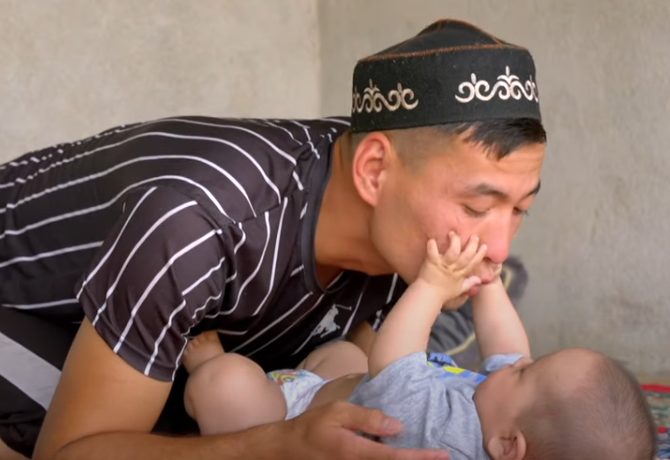
A young father plays on the floor with his infant in the Kyrgyz Republic. Photo Credit: Global Health Media for USAID
2. Play builds brains.
Brain development is most rapid in the first five years of life. Playful learning activities help build the architecture of children’s brains and strengthens their learning outcomes by:
- Allowing children to make sense of the world and facilitating the development of abilities that enable children to think through new ideas;
- Helping children form and maintain relationships with adults and friendships with peers, both of which are important for social and emotional development;
- Enhancing language development, either as children use and practice speech with playmates or play with language itself, making up words, puns, and rhymes;
- Supporting the development of cognitive skills and strategies, such as attention and focus, self-control, problem-solving, and reflection;
- Nurturing children’s creativity, which can predict later cognitive capacities.
In Rwanda, USAID’s Gikuriro Kuri Bose supports high-quality, integrated, and inclusive nurturing care services through interventions at the household, community, and national levels. The activity provides adequate nutrition, responsive caregiving, economic security, and opportunities for early learning through play, with a specific focus on disability inclusion.
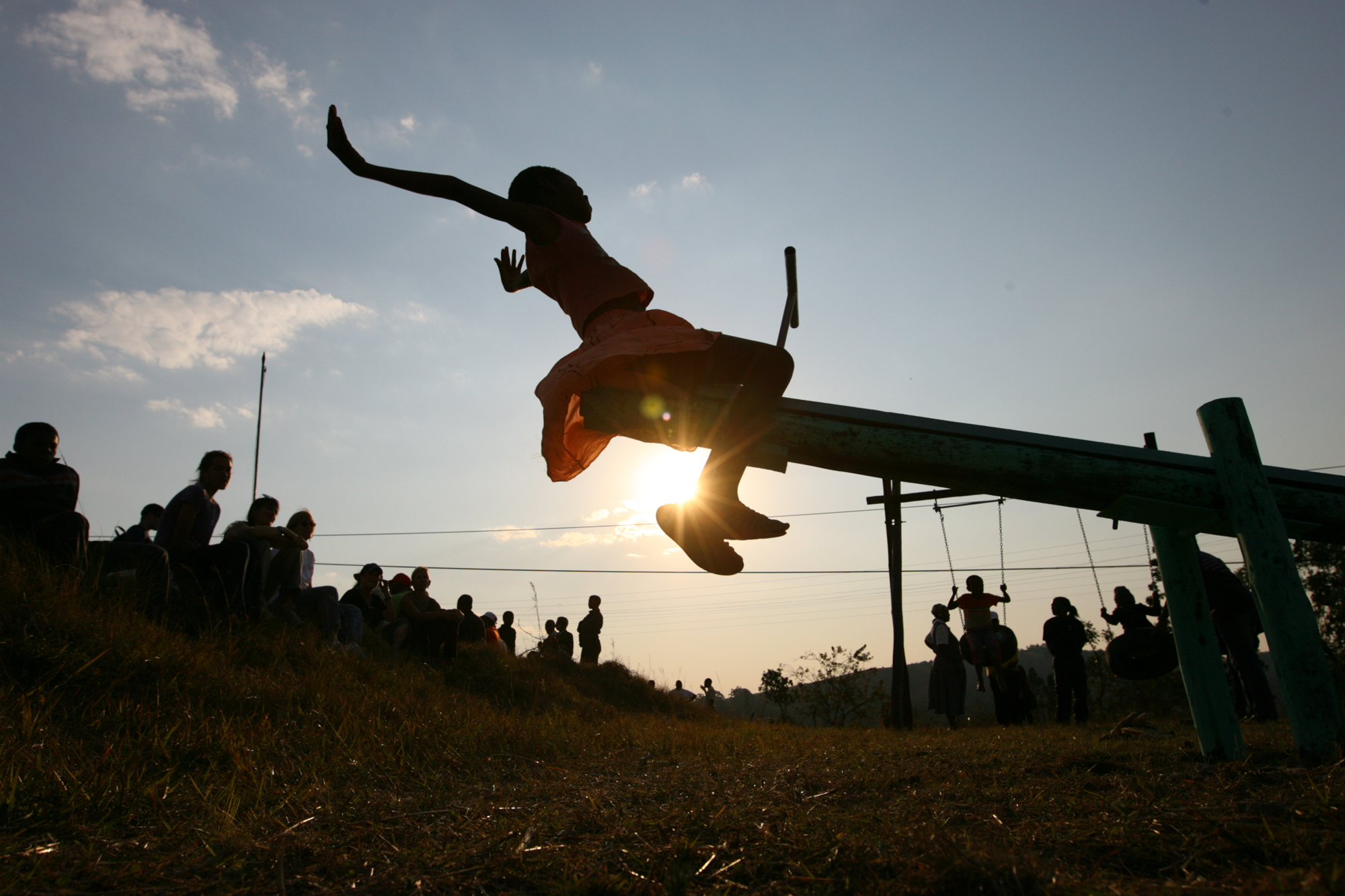
In Swaziland, a young girl plays on a new seesaw on a playground built by the Elizabeth Glaser Pediatric AIDS Foundation.
Photo Credit: Jon Hrusa, Elizabeth Glaser Pediatric AIDS Foundation
3. Children’s mental health and well-being relies on playful experiences.
The power of play extends beyond early learning, it also plays a key role in supporting a child’s mental health. Play – anything from games, to dancing, to singing – provides the means to relax and reduce stress and anxiety, for both children and adults. When children and caregivers are enjoying fun moments and laughing together, their bodies release endorphins that promote well-being.
It also builds confidence. As children solve problems or come up with creative solutions during play, they feel a sense of accomplishment and competence. This security in their own abilities can later fuel the development of other key cognitive, social, and emotional skills.
In Ethiopia’s Tigray region, due to conflict, more than 3,000 schools have been damaged and more than 1.7 million children have been displaced with significant implications for mental health and well-being. Through a partnership among USAID, the LEGO Foundation, and Save the Children, the Childhood Development Activity focuses on delivering quality, play-based, and inclusive early childhood services in pre-primary classrooms and temporary learning spaces in five regions. It also supports caregivers and communities so they can provide young children with social-emotional and early learning support outside school.
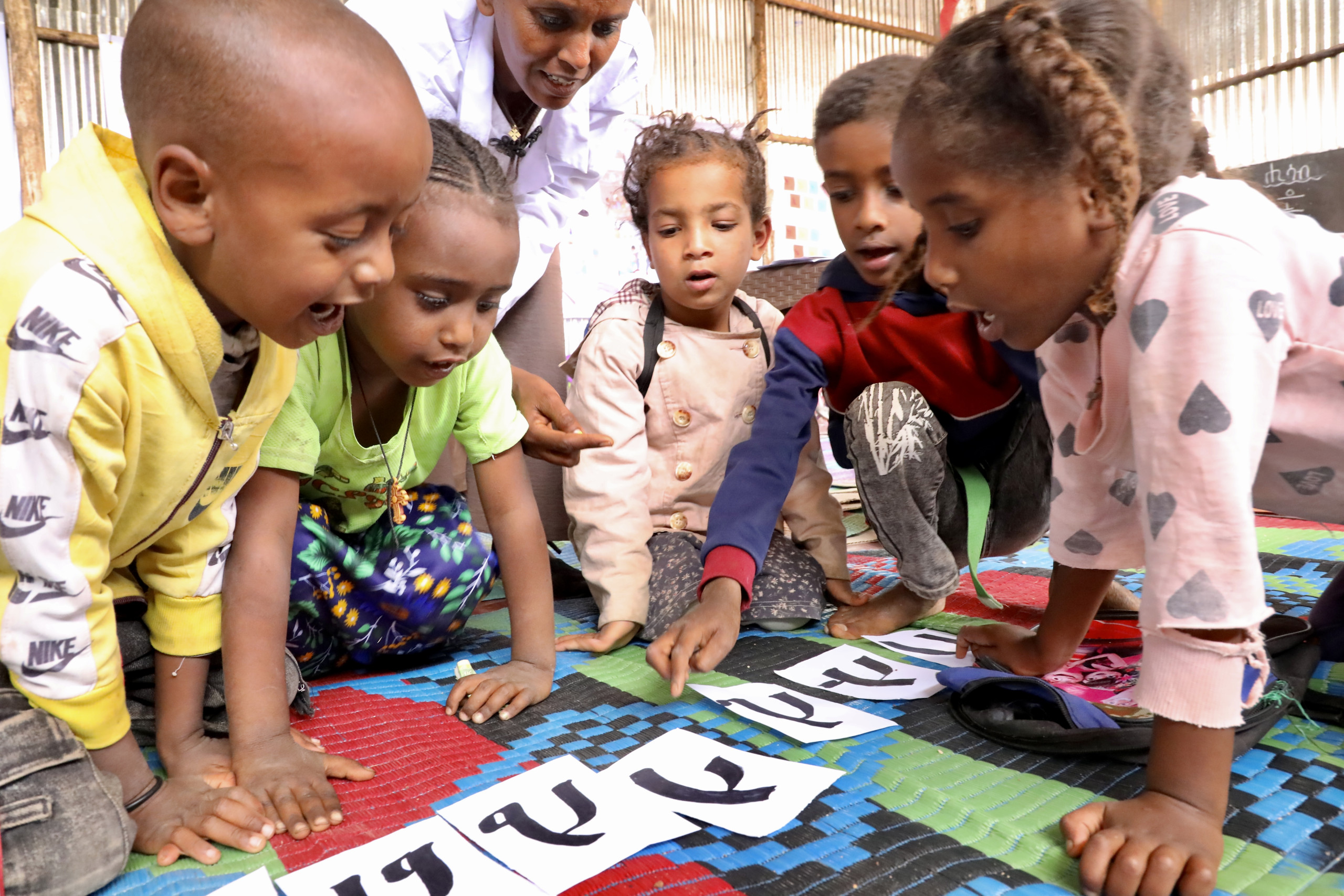
Young children play with Amharic letters in a pre-primary class in Tigray Region supported by the USAID-LEGO Foundation Childhood Development Activity.
Photo credit: Ephrata Getachew, Save the Children, Ethiopia
4. Play is especially important for children in crisis settings.
Play isn’t always fun and games. When children are dealing with complex emotions, it often shows up in their play. While play benefits all children, it can have specific positive impacts on children who have experienced trauma or displacement. When witnessing the violence of war or living through a natural disaster, play can provide a much-needed constant. Creating spaces to play for children affected by crises allows them to work through their feelings such as pain, fear, and loss and provides a restorative way to express things they don’t yet have the words to fully explain.
Research has shown that making time for play can also protect children from the negative impacts of prolonged exposure to stress. Long periods of stressful situations – like protracted crises – can affect a child’s physical and mental health. Play and positive, supportive relationships with adults can help buffer these effects.
In Iraq, which continues to recover from years of conflict, communities are struggling to find a new sense of normalcy. USAID is partnering with Sesame Workshop to implement Ahlan Simsim, a project which draws upon the groundbreaking work of Sesame Workshop and the International Rescue Committee in the Middle East. The USAID partnership with Ahlan Simsim develops and delivers culturally-tailored and age-appropriate original educational media content for young children, and services and tools for caregivers and teachers to increase meaningful participation in their communities and greater tolerance across different ethnic, religious, and sectarian groups.
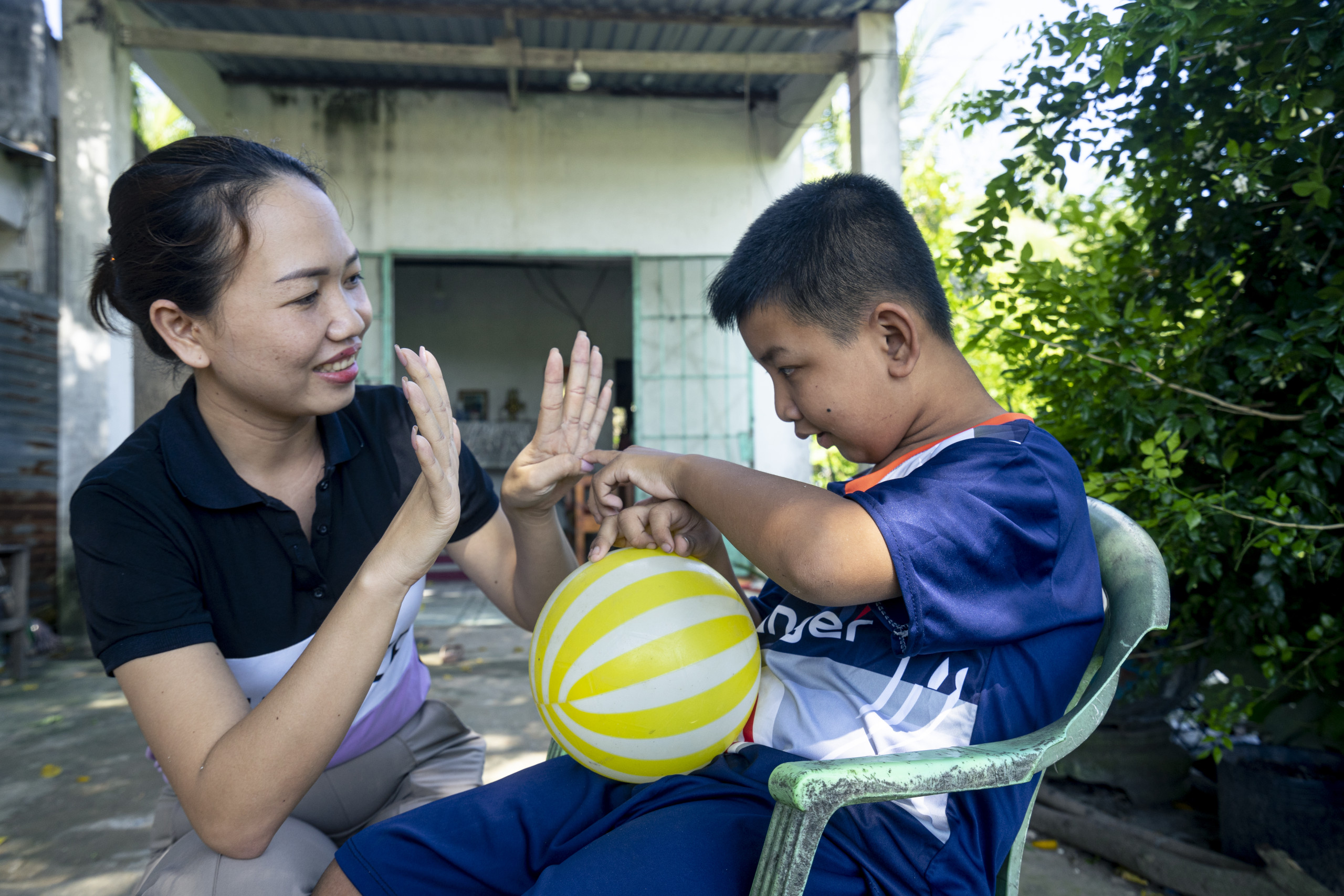
A young boy with a disability is playing with his caregiver.
Photo Credit: USAID Vietnam
5. All children have a right to play.
Children with disabilities have fewer opportunities for play than their non-disabled peers, and this is likely to have negative impacts on their overall development and well-being. This needs to change. All children benefit from the learning and social connections with other children and adults that are developed through play. Ensuring children with disabilities are included and supported to participate in play is a fundamental right.
In Tajikistan, USAID is partnering with UNICEF to support the Government of Tajikistan to improve school readiness by providing modern, inclusive, student-centered, and culturally-appropriate early childhood education, including play-based learning. This work will reach early childhood education centers in 20 target locations throughout the country, and be inclusive of all children, including girls and children with disabilities.
It is clear that play supports brain development, heals, builds resilience, instills confidence, advances inclusion and equity, and unlocks lifelong learning. As we mark International Day of Play, we collectively call for greater will and commitment to using play to advance the health, learning, and development of children in adversity around the globe.
